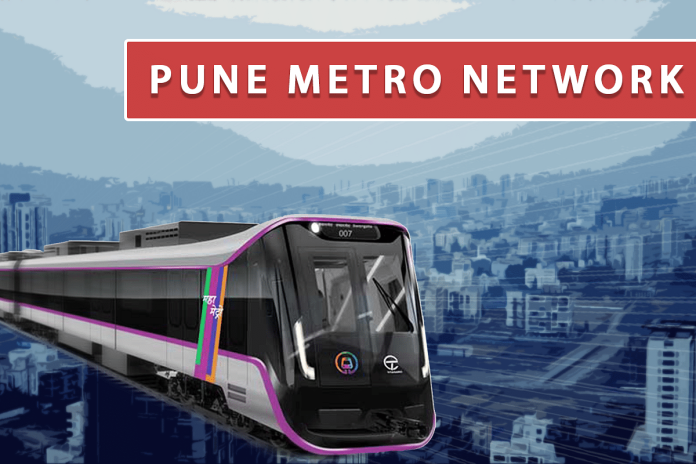These assessments will consider factors like financial feasibility, government risk, commuter convenience, fare structures, and interchange facilities.
PMRDA has received a detailed project report (DPR) from the Delhi Metro Rail Corporation (DMRC) for Metro Line 4.
The Pune Metropolitan Region Development Authority (PMRDA) is actively working on the development of two new metro lines in Pune.
The Pune Municipal Corporation (PMC) has approved Phase 2 of the metro rail project, allowing for the implementation of Metro Lines 4 and 5.
These new lines will add a total of 113.23 km to the metro network.
Currently, PMRDA is already in the process of developing Metro Line 3, which will connect Hinjewadi to Shivajinagar. The installation of piers for the 22.3 km corridor is now in its final phase, setting a remarkable record by being completed in just 17 months.
The 23 km fully elevated corridor connects the bustling IT hub of Hinjewadi, with the central business district of Shivajinagar, with 23 stations on the way connecting Baner Road, Balewadi, Aundh and Pune University.
PMRDA has received a detailed project report (DPR) from the Delhi Metro Rail Corporation (DMRC) for Metro Line 4.
This line will span from Shivajinagar to Loni Kalbhor, with extensions towards Saswad and Swargate. Additionally, Maha Metro has prepared the DPR for Pune Metro Line 5, which will cover the route from Khadakwasla to Kharadi. It is worth noting that a section from Swargate to Pulgate and Hadapsar is common to both of these lines.
To address the challenges associated with developing the shared stretch of the metro lines, the Pune Unified Mobility Transport Authority (PUMTA) organized a meeting under the leadership of the divisional commissioner.
According to a report in The Financial Express, During this meeting, PUMTA directed the PMRDA to appoint a transaction adviser (TA) who will provide guidance and expertise in managing this particular section of the metro lines.
The PUMTA’s main responsibility is to evaluate various development approaches for the Metro lines, such as public-private partnership (PPP) and engineering, procurement, and construction (EPC).
These assessments will consider factors like financial feasibility, government risk, commuter convenience, fare structures, and interchange facilities. The PUMTA’s recommendations will serve as a guide for decision-making within the authority.
Financial feasibility of routes
The PMRDA is conducting a study to determine the financial feasibility of different routes.
Raju Thanage, the executive engineer of the PMRDA, has initiated the process of seeking transaction advisory services specifically for Metro Line 4 and Metro Line 5 in Pune.
The primary objective is to thoroughly assess the financial viability of these routes and determine the most appropriate development mode.
The pre-feasibility report will focus on the development modalities of Metro Line 4 and Metro Line 5, with an emphasis on ensuring financial feasibility, mitigating government risk, and improving commuter convenience through fare structures and interchanges. Additionally, the agency responsible for these services will propose a revenue model.
The agency will make recommendations to the authority on how to develop the proposed Metro routes. These recommendations may include executing the projects in segments or as a whole, using either public–private partnership (PPP) or Engineering, Procurement, and Construction (EPC) modes.
The proposals will then be submitted to the state government for a final decision on the implementation mode.


